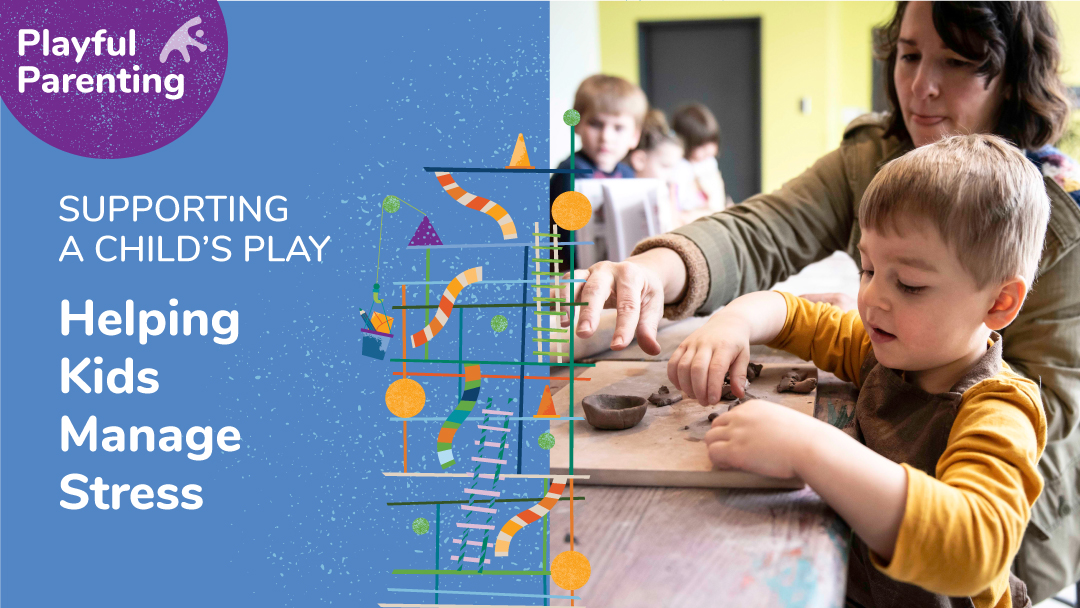
Helping Kids Manage Stress
You would be hard pressed to find anyone who disagrees that kids are coping with more stress these days than ever before.
While learning to deal with some stress is a healthy part of growing up, it’s important that adults know how to recognize the signs of high stress in children and help them learn how to manage and process what they are feeling. Just like adults, each child reacts to stress differently.
Be on the lookout for these common signs, which can indicate that a child’s high stress levels could be causing them problems.
- Behavioral changes – Some kids may withdraw or show a lack of emotion, while others may begin acting out or become more clingy than normal.
- Change in sleep patterns – This includes difficulty falling asleep, staying asleep or an increase in nightmares.
- Upset stomach – If stomach pain is present without other signs of illness (such as vomiting, diarrhea, fever, chills, continuous pain or weight loss), it may be a manifestation of stress.
- Regression to old behaviors – This might be seen in a regression in potty training progress, bedwetting or reverting to sucking a thumb.
Adults play a pivotal role in emotional development by helping kids identify and work through stressful feelings. Have an open conversation with your kids about what they are feeling and why it’s important to get those feelings out. Explain their feelings are valid and normal and encourage them to express themselves by listening to and comforting them. You can also reinforce problem solving skills by letting kids take the lead on building a plan for how they can deal with their stressful feelings. These are only a few of the many strategies you can use to make your kid feel heard and help them manage their stress during challenging times.
You may find it helpful to offer ideas of activities you can do together to help relieve stress.
- Exercise is one of the best stress-relieving activities, whether it’s taking a hike outdoors, playing a sport or dancing in the living room.
- Schedule time for relaxing activities like painting or yoga.
- Practice meditation and deep breathing by slowly counting to four as you inhale and again as you exhale.
- Use sensory objects, like scarves or Play Doh, to invoke feelings of calm.
- Listen to music. It could be fun and upbeat or slow and calming.
- Create a bedtime routine that eliminates screen time and builds in quiet family time to help kids unwind.
- Combat stress with play! Play helps distract from everyday stresses by letting the mind focus on something else, allowing kids feel to more in control.
While we can’t keep kids from feeling stressed, we can play a crucial role in helping kids feel safe and secure during stressful times.

SUPPORTING A CHILD’S PLAY
SUPPORTING A CHILD’S PLAY
Museum Members Save on Summer Travel
Here’s a money-saving hack for you: Use a Minnesota Children’s Museum membership to waltz into must-see family attractions for half-price or even free.
Playful Mindset Turns Chore Time into Play TIme
There’s no way around it: There are always chores to do and errands to run.
Those responsibilities don’t have to be a drag on an otherwise lovely day. What if, instead, they became a way to engage with kids and have some playful time together?
Monsters Are Taking Over the Museum this Summer
Monsters Are Taking Over the Museum this Summer A batch of friendly monsters is on its way to Minnesota Children’s Museum. We tried to tell them the museum’s three floors of fun are for people, not monsters. But they have their big hearts and furry faces set on...
Get Ready for Something New: The Studio Gets a Makeover
Get Ready for Something New: The Studio Gets a Makeover If you’ve been to the museum recently, you may have noticed a new open floorplan in The Studio. We’ve removed the center island, the first of many changes to give the gallery a new look and feel. Beginning April...